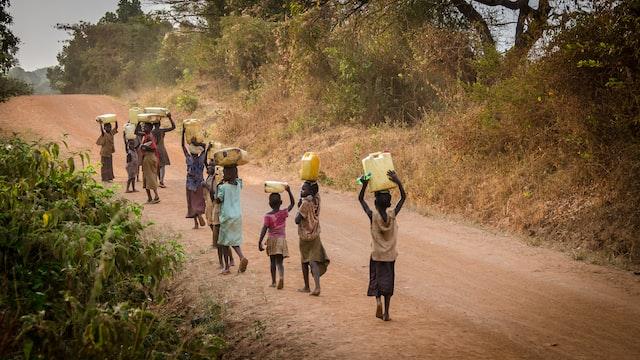As the pope’s ambassador to Cameroon moves on, leaving behind a country still torn apart by ethnic and linguistic divides despite his best efforts at peace, his final plea to the country is to embrace a spirit of “dialogue without prejudice.”
Newsroom (23/12/2022 12:55 PM, Gaudium Press) — Archbishop Julio Murat, a Turkish prelate who’s served in Cameroon and Equatorial Guinea since 2018, was named the new Apostolic Nuncio, or ambassador, to Sweden and Iceland on November 9.
During a Mass to bid him farewell organized by the Cameroon Episcopal Conference on December 12, 2022, Murat asked God and the Christians to forgive him “for his sins of omission.”
“If I hurt anyone unknowingly, please, forgive me,” he said.
“There are things you can’t forget in life, even if you have so much to do,” the nuncio said, and acknowledged the “tremendous” support he received from the Cameroon Bishops’ Conference, the Christians and the country’s authorities.
He expressed gratitude to Pope Francis for trusting him with the position and called for dialogue whenever there are differences.
“The Church wasn’t meant to separate people, but to unite those who are separated. And if there are differences as a result of different sensibilities, we should always be open to listen, to dialogue, without prejudice.”
Murat didn’t mention the one issue that has divided Cameroon and threatens to bring down the country’s very foundations: A separatist war in the country’s English-speaking regions, which has been raging since 2016.
The President of the Bishops’ Conference, Archbishop Andrew Nkea lost no time in thanking the Apostolic Nuncio for his efforts at finding solutions to the crisis.
“You worked so hard to make sure that the poor and the vulnerable of our country are not forgotten,” Nkea said.
“Your love for peace, unity and reconciliation amongst Cameroonians characterized your stay in Cameroon. We will miss your spiritual diplomacy for the common good, especially for the people of the northwest and southwest regions.”
In those two territories, separatists have been fighting to create a new nation to be called “Ambazonia.” Fighting broke out in 2016 when the French-speaking central government took a hard stand against English-speaking teachers and lawyers who took to the streets to protest the over-bearing influence of French in Anglo-Saxon schools and Common Law Courts, which are signposts of the British colonial legacy to the two regions.
Nkea recalled that Murat was a key figure in the organization of a National Pilgrimage for Peace that took place at the Marian Shrine in Marienberg Edea from April 23-24, during which Cameroon was re-consecrated to the Immaculate Heart of Mary.
Noting that there was a time for everything, Nkea said that what’s important: “what happens between the time one is born and the moment one dies. It’s the same thing: when you arrive and when you leave is not important. What’s important is what happens between when you arrive and when you leave.”
Besides the search for peace in a divided nation, Nkea lauded the nuncio’s effort to create a more harmonious atmosphere between the Church and the state.
“Your work in Cameroon filled a great void between the church and the state, and our church-state relations are now better understood,” he said.
In an apparent swipe at top government and religious officials present at the farewell mass, Nkea spoke at length about the notion of authority and what it should mean in the exercise of their daily duties.
“A person in authority is not just anyone who wields coercive power over others,” the cleric said.
“The exercise of genuine authority is not to control, to keep in line, to command. On the contrary, it is to be an agent in releasing the potential that is in people: to be an empowering agent. Jesus didn’t wield coercive authority. He came not to be served but to serve. He came to lead people into the full development of what they could be, and what they were meant to be,” Nkea said.
The cleric explained that when Jesus went down on His knees to wash his disciples’ feet, it wasn’t a sign of weakness, “it was an act of authority, the authority of outreaching love.”
Noting that virtually everyone yielded some kind of authority, Nkea urged everyone to understand that all authority comes from God,” and we shall all one day answer to God how we used the authority that he gave us.”
“God gives us authority not to misuse, not to abuse, and not to impose our authority on others. All authority must be used in the fear of the Lord who is the source of all authority,” he explained.
With Christmas just days away, Nkea warned against “worldly, circular celebrations of Christmas,” and exhorted Christians to prepare to celebrate the coming Lord “with true joy and understanding…we cannot be distracted by all those excesses… and end up forgetting why we celebrate Christmas in the first place-our joy in the Lord’s coming and His salvation.”
- Raju Hasmukh with files from Crux Now



































